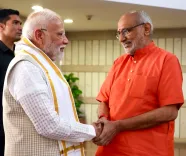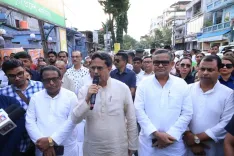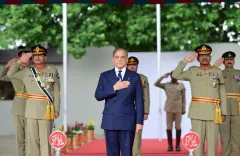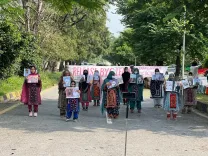Should the Government Resolution on Kunbi Certificates be Withdrawn?
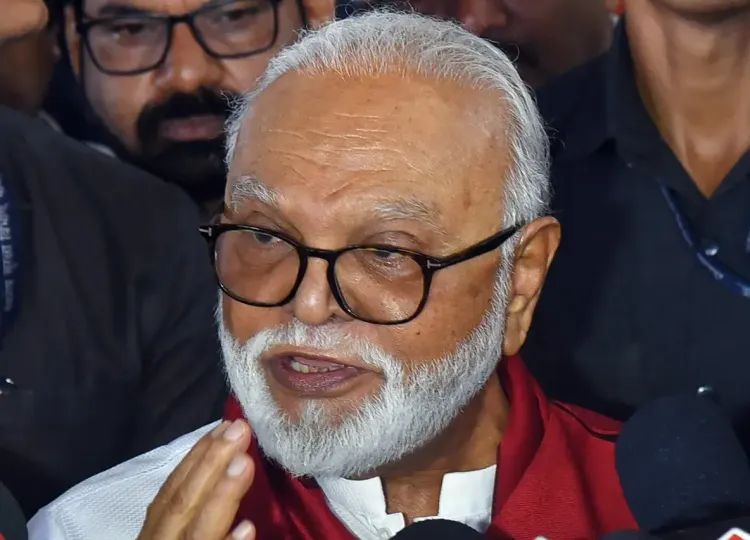
Synopsis
Key Takeaways
- Minister Chhagan Bhujbal urges reconsideration of the Kunbi certificates GR.
- The GR may threaten OBC reservation rights.
- Concerns about hasty government actions without proper consultation.
- Classification of Kunbis as OBC is emphasized.
- SEBC Act, 2024 grants Maratha reservations.
Mumbai, Sep 9 (NationPress) Maharashtra Minister Chhagan Bhujbal has urged Chief Minister Devendra Fadnavis to promptly retract, reassess, or appropriately adjust the government resolution concerning the procedure for issuing Kunbi/Maratha Kunbi/Kunbi Maratha Caste Certificates, ensuring it does not compromise the reservation rights of the OBC category.
Bhujbal, a leader from the NCP and the founding president of the All India Mahatma Phule Samata Parishad, emphasized that this action is crucial to prevent a volatile situation in Maharashtra.
Speaking to reporters after the cabinet meeting, he mentioned that the Government Resolution (GR) was hastily issued under immense pressure from a single influential community, without presenting it to the Cabinet or considering any objections and suggestions raised by Other Backward Classes members in the state.
He pointed out that OBC reservations apply to over 350 castes in Maharashtra and that the GR must be amended for clarity, ensuring it does not infringe upon the rights of these OBC individuals in the state.
According to him, the recognition of records from the Hyderabad Gazetteer has been previously established and acted upon.
"Thus, the GR dated September 2 serves no purpose regarding the application of the Hyderabad Gazetteer, as this has already been accomplished," he stated.
Minister Bhujbal objected to the term Maratha Community being used instead of OBC or Kunbi, Maratha Kunbi, Kunbi Maratha.
He clarified that the state government has classified Kunbis as OBC and the Maratha community as a Socially and Educationally Backward Community.
Additionally, the Maharashtra Assembly passed a separate reservation under the SEBC Act, 2024, granting 10 percent reservation in state education and employment for the Maratha community, categorizing them as socially and educationally backward.
"Hence, the use of the term Maratha Community in the Act concerning OBC, SC, and ST to allow more individuals from that community to acquire OBC certificates is illegal, as it enables the Maratha community to benefit from two forms of reservations," he remarked.
He highlighted that various rulings from the Supreme Court and High Courts, along with subsequent Acts passed by the state legislature, which clarify the qualifications and procedures for obtaining OBC caste certificates, have been disregarded.
As for the Marathas, the GR diverges from the established norms for caste verification and obtaining caste validity for all castes, he added.
Maintaining two distinct procedures for the same class, the OBC, constitutes arbitrary action and discriminatory practices that have no connection to a shared objective, namely, the verification and issuance of caste certificates.
Minister Bhujbal contended that the GR cannot prevail against existing rules that govern the entire domain of verifying and granting caste certificates to specific communities.
"These regulations outline in detail the procedures for issuing caste certificates and include forms and formats necessary for this process. These rules remain in effect as they have not been amended through proper procedures in the 2000 Act," he noted.
"Ultimately, a caste certificate should be issued to a caste, not a community, even if it is solely for the issuance of the Kunbi caste. We respectfully argue that no single caste should receive preferential treatment in the issuance of caste certificates, while other reserved backward categories are overlooked. This situation discriminates against various castes within the OBC categories," he observed.


